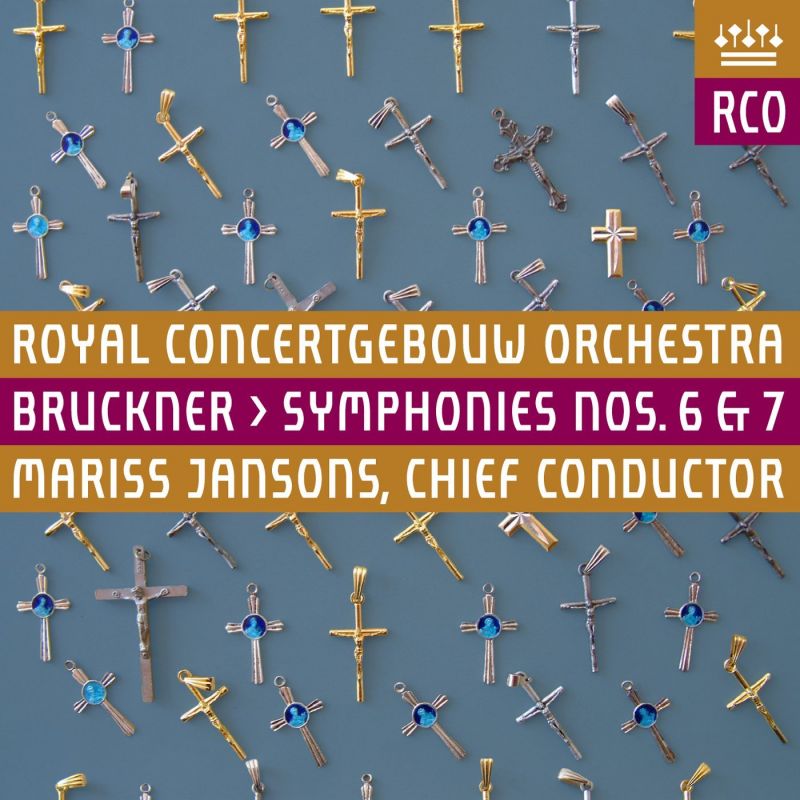BRUCKNER Symphonies Nos 6 & 7
View record and artist detailsRecord and Artist Details
Composer or Director: Anton Bruckner
Genre:
Orchestral
Label: RCO Live
Magazine Review Date: 05/2015
Media Format: CD or Download
Media Runtime: 116
Mastering:
DDD
Catalogue Number: RCO14005

Tracks:
| Composition | Artist Credit |
|---|---|
| Symphony No. 6 |
Anton Bruckner, Composer
Anton Bruckner, Composer Mariss Jansons, Conductor Royal Concertgebouw Orchestra, Amsterdam (members of) |
| Symphony No. 7 |
Anton Bruckner, Composer
Anton Bruckner, Composer Mariss Jansons, Conductor Royal Concertgebouw Orchestra, Amsterdam (members of) |
Author: Rob Cowan
The aura of organ music that greets the start of the Adagio finds its ideal instrument in the massed Royal Concertgebouw strings, Jansons guiding the notes with easeful mastery. Once into his stride, he edges forwards without ceremony, the brass at the climax captured here with great amplitude and clarity. The moderato section (fig D, at 3'57" and fractionally faster than is asked for in the score) sounds a little hurried, whereas the main climax – complete, in the context of this 1954 Nowak edition, with timpani, cymbals and triangle – rings resplendent and the brass choir that follows in its wake is quite magnificent. As to the remaining two movements, I’d say the lyrically played Trio of the Scherzo is the highlight.
The Sixth is rather more problematic. I searched out a previous Concertgebouw issue of the same symphony under Eugen Jochum, a magnificent performance from November 1980 where the opening is truly maestoso. Jansons’s tempo is significantly swifter (14'47" as opposed to Jochum’s stately 17'34"). The mighty panorama at the first movement’s centre (7'48") gains in forward momentum what it loses in spaciousness, not an especially beneficial trade-in, at least not in my view. To offset the rushed first movement Jansons conducts an intense and beautifully played Adagio, its various episodes sensitively negotiated; then we’re given a swift, dancing Scherzo and a dramatic finale.
As to rival digital versions, Michael Gielen and the SWR Symphony Orchestra (Hänssler) is strongly recommended and so is Stanissaw Skrowaczewski and the Saarbrücken Radio Symphony Orchestra (Oehms), if you can find it away from his complete cycle, though that too is well worth acquiring. As to the Seventh, Jansons certainly holds his own; but if you find my comments on the Sixth worrying (why worry?), Janowski with the Suisse Romande Orchestra (Pentatone) is a much-underrated version and extremely well recorded to boot.
Discover the world's largest classical music catalogue with Presto Music.

Gramophone Digital Club
- Digital Edition
- Digital Archive
- Reviews Database
- Full website access
From £8.75 / month
Subscribe
Gramophone Full Club
- Print Edition
- Digital Edition
- Digital Archive
- Reviews Database
- Full website access
From £11.00 / month
Subscribe
If you are a library, university or other organisation that would be interested in an institutional subscription to Gramophone please click here for further information.




